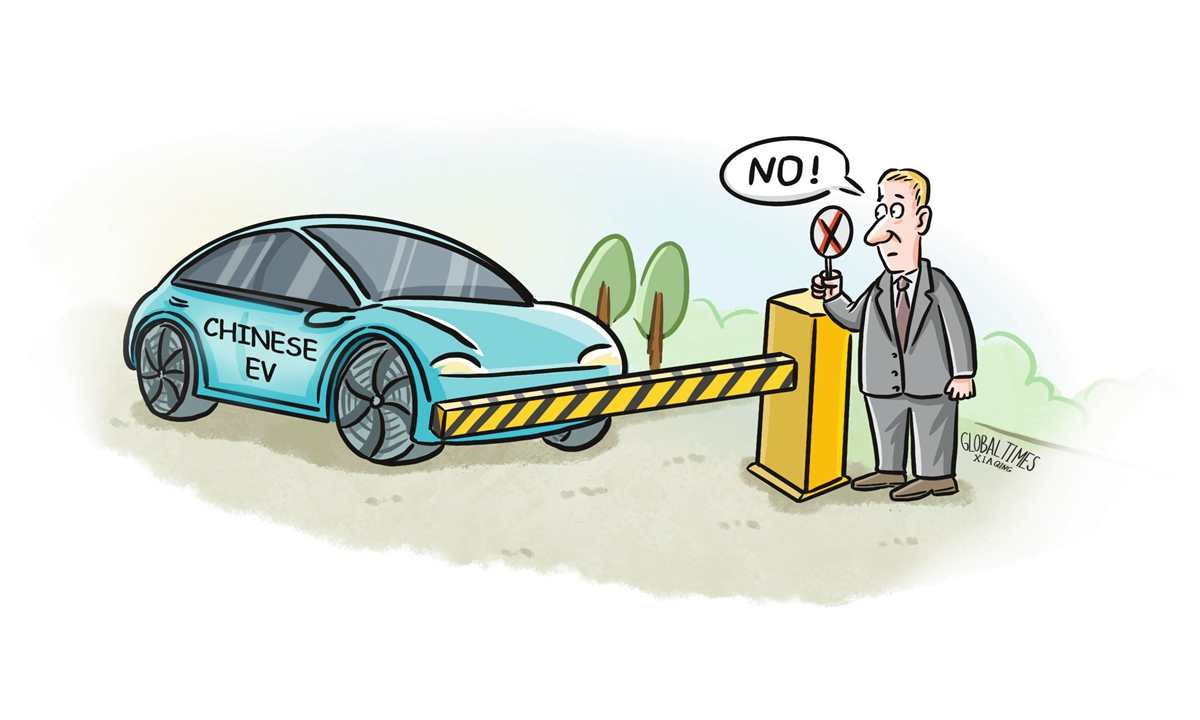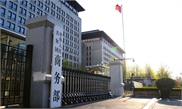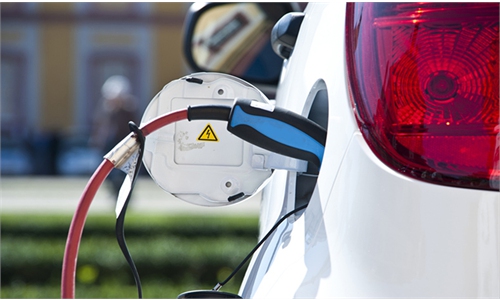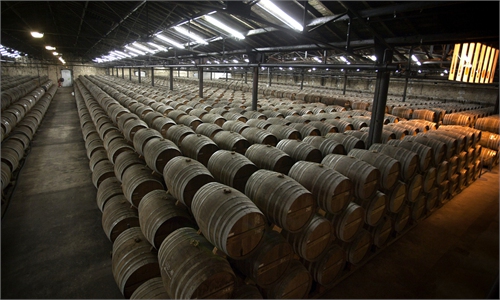
Illustration: Xia Qing/GT
German Chancellor Olaf Scholz reaffirmed Germany's stance against the EU's hefty additional tariffs on Chinese electric vehicles (EVs) on Monday at the opening of Mercedes-Benz's first battery recycling plant in Kuppenheim, south-western Germany, saying that he is against tariffs that harm Germany and German automakers should not be afraid of competition from China, according to Reuters.Scholz's remarks not only reflect the ongoing divisions within the EU over hiking tariffs on Chinese EVs but also underscore the need to reckon with how to effectively strengthen industrial competitiveness within an economy. Free trade and market competition are vital drivers of industrial advancement. Protectionism does not bolster competitiveness and fails to promote development.
Consultations between China and the EU regarding EV tariffs are still ongoing. If the EU can embrace rational perspectives and uphold the principles of fair competition and win-win cooperation, it could further strengthen the mutually beneficial economic and trade cooperation between China and the EU. This approach would also be beneficial to the EU's own economic interests.
The EU voted on October 4 to impose tariffs up to 45 percent on EVs from China. However, divisions persist within Europe, with countries like Germany and Hungary continuing to oppose these measures. The German chancellor's reaffirmation of this stance appears to stem from a more pragmatic assessment of competition and industrial growth.
The ongoing debate within the EU regarding tariff increases highlights the lack of a unified approach to fostering joint development with China in sectors like EVs, where both parties possess complementary strengths.
In an ever-evolving industrial landscape, prioritizing development is crucial. It is essential for both China and the EU to adopt a mindset and vision focused on collaborative growth. By embracing competition as a means of development, both sides can enhance their gains while minimizing losses.
For instance, German automakers like Mercedes-Benz, BMW and Volkswagen have been criticizing the EU's EV tariff hike decision. Mercedes-Benz said the tariffs were a "mistake that can lead to far-reaching negative consequences," urging the European Commission to delay the implementation of the higher duties, according to CNBC.
Hiking tariffs and resorting to protectionist policies are detrimental to both economies and consumers. Such a lose-lose approach ultimately results in greater losses for all parties involved. Instead of fostering growth and collaboration, these measures stifle trade and innovation, hindering progress for industries and enterprises in the long run.
Protectionism is shortsighted. Those who resort to protectionist tariffs cannot gain competitive edge through the practice. Rather than stopping the development of the other side, protectionism may slow down one's own development.
The EU is at a critical stage of accelerating its energy transition, and imposing additional EV tariffs will inevitably lead to increased costs for this transition. It will hamper the EU's efforts to combat climate change, and in the end, the costs are likely to be passed on to average European consumers.
In contrast, strengthening cooperation will promote mutual development. In 2023, China-Europe trade reached $783 billion. The stock of bilateral investment between China and Europe exceeds $250 billion, and enterprises from both sides continue to demonstrate confidence in each other's markets.
In the current complex international economic and trade landscape, China and the EU should focus on the actual demands of businesses and actively resolve disputes through negotiation. They should firmly promote international cooperation to address challenges and jointly advance multilateralism and global governance.
Politicizing economic and trade issues and adopting protectionist practices cannot help resolve differences and will only lead to further deterioration of the situation. It is hoped that the EU will promptly cease its politically motivated trade protectionism and take concrete actions to return to the correct path of win-win cooperation.
The author is a reporter with the Global Times. bizopinion@globaltimes.com.cn



